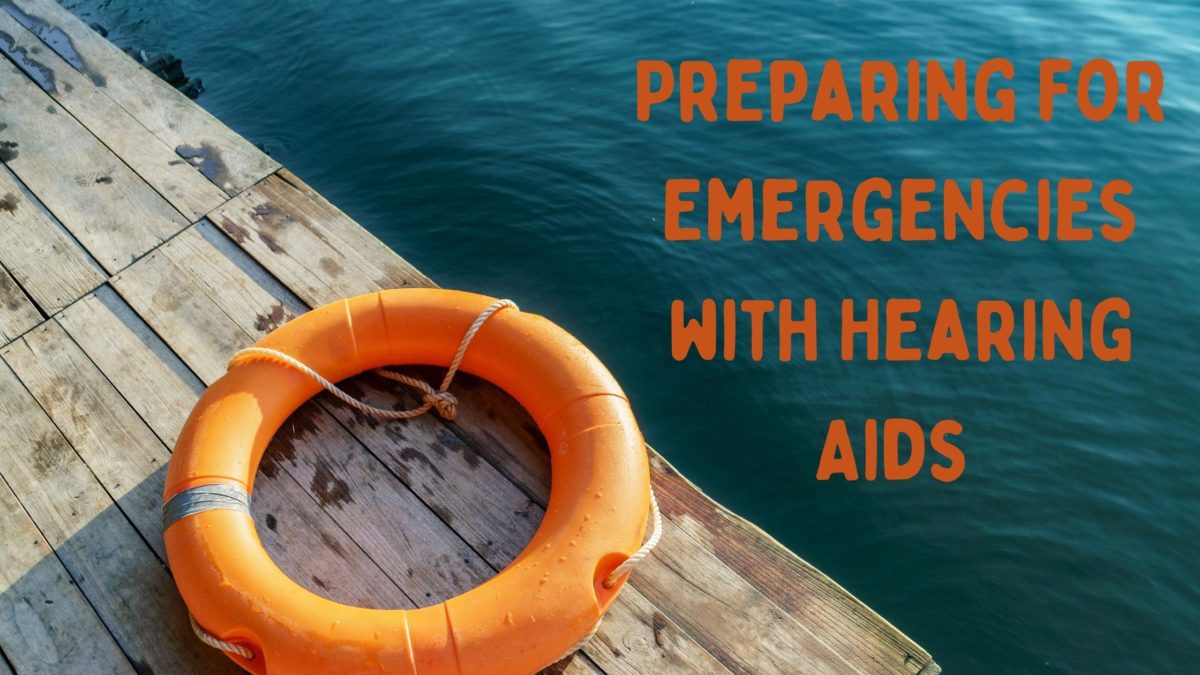Most of us in Illinois know how important it is to be prepared for severe winter storms and snow. For instance, the majority of Illinoians would never leave the house in winter without a snow shovel and ice scraper in our car. Now, even though spring is nearly upon us, this doesn’t mean that the threat of emergencies is past. Some of the most common natural disasters in Illinois include severe storms causing floods, and tornadoes causing power outages.
Other less frequent disasters include wildfires, earthquakes, landslides, and seiches. While these emergencies are less likely, it’s important to remember that if it can happen, it just might! It is a good idea to be prepared for any emergency which can come your way, especially if you have hearing loss. For those of us who use hearing aids, taking and preparing extra precautions ahead of time can ensure that you will be ready to hear and communicate when any disaster strikes.
Make sure your alarms are “hearing impaired friendly”
When disaster strikes, most emergencies are sent via text message. It is important to ensure that your phone is set to not only make loud sounds which could be missed if your hearing aids are not in, but also enable your phone to alert you via flashing lights and vibration. These alarms, which focus on non-auditory senses, could be the difference between being able to respond to an emergency in time and getting to a safer situation sooner. Some alerts are automatically systems installed on your smartphone and others require you to opt-in. Take care to sign up for all emergency alert systems ahead of time to make sure you’re ready for any emergency that could occur.
Pack an emergency bag
When an emergency strikes, it’s a good idea for anyone to be prepared with first aid, extra drinking water, power bars and more. For someone with hearing loss extra precautions should be taken. Make sure to pack a pen and paper in case something unexpected happens to your hearing aids. This way you can write out important things you need to communicate to others such as, that you have a hearing impairment and more. You may want to also pack a Personal Sound Amplification Devices which is incredibly helpful in an unexpected situation. These are relatively affordable and while they may not be as precise in amplification, as your hearing aids, they can certainly help in a pinch.
Make sure your hearing aids are ready for when emergency strikes!
Many hearing aids require you to change the battery every 3 to 7 days. If an emergency occurs the last thing you want to do is run out of battery power. Make sure to pack extra batteries in case your current battery runs out of juice or you can’t access more in an emergency. If your hearing aids use rechargeable batteries it is a good idea to invest in a second charger for your emergency bag. It is also safe to carry a waterproof case for your hearing aids in case you end up in a situation in which you can’t avoid moisture, such as a rough storm or flood.
Emergency contacts
It can be terrifying to navigate an emergency on your own, especially if you have an issue with hearing. If you live alone, make sure to agree to be emergency contacts with someone close by who knows to check on you when disaster strikes. Make an emergency plan ahead of time including what you would do in different possible emergency situations. You don’t have to dread dealing with possible dangers if you have a plan. It’s a good idea to 2-3 people close by who you can check in with. Not only can they help you, but you help them as well. It’s just safer to navigate a disaster together.
Make sure your hearing aids are up to date
Most hearing aids have a lifespan of 5-7 years. While this may not seem like a very long time, consider that these tiny devices are at work from the time you wake up till the time you go to sleep, day after day, for years. Even so, hearing loss is a progressive condition, which can often grow worse overtime. Set up an appointment for a hearing test to make sure your hearing aids are working their best ahead of time. This way if something goes wrong, you can be sure that you are able to hear your best, no matter the emergency.
If you are in need of hearing aid adjustments, repairs, or maintenance, we’re here to help! Contact us today to learn more about our hearing aid services.

